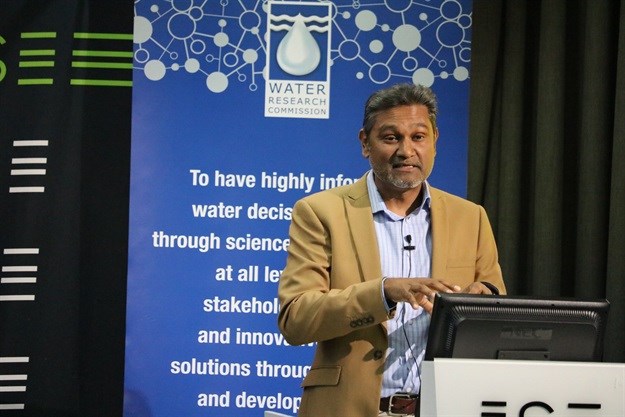Sanitation innovation - a key to Africa's development strategy

For an already underserviced continent with respect to basic needs of water, sanitation, energy, health and nutritional security; the prospect of a doubling of the population in the next half century is daunting. We are rapidly reaching, and in some cases exceeding the planetary boundary conditions on the one hand and have the objective of ensuring universal access to these basic services and facilitating economic growth on the other.
But as Pliny the Elder remarked ‘Ex Africa semper aliquid novi’ – ‘there’s always something new coming out of Africa’. Africa can pioneer global sustainable development, not despite, but precisely because of its current low industrialisation levels. This means while the global North has to invest in high cost retrofitting in order to switch from the current high carbon, water intensive, waste producing economic model; Africa can leap-frog directly into the sustainable development paradigm. She already has a wonderful example of this leap-frogging with mobile telephony which has provided proliferated access to hundreds of millions of Africans while saving most of connected Africa from the eyesore of millions kilometres of high maintenance and aesthetically challenging overhead telephone wire networks.
Another of those critical domains that has this possibility is sanitation. The current African backlog which is primarily in Sub-Saharan Africa is estimated at 570 million people who don’t yet have access to improved sanitation, and if we are to achieve the Sustainable Development Goal for sanitation, this situation has to reversed by 2030. This is in an environment of increased water scarcity and although the IMF in its Regional Economic Outlook report pegs a continued recovery, it is still a low growth rates forecast of 3.5% in 2019. In addition, this is a region with low energy access and security. The International Energy Agency (IEA) in its Energy Access Outlook 2017 concluded that 95% of the 1.1 billion people without access to electricity were in Sub-Saharan African countries. These are difficult boundary conditions. It will take high levels of innovation, creativity and ingenuity to meet both the SDGs and lay the foundations of sustainable development within this framework.
Revolutionising sanitation
Fortunately, we have already achieved some important starting points. One of these is in sanitation. The Water Research Commission together with its local and international partners, many working under the banner of the Gates Foundation Reinvent the Toilet programme, have developed a suite of cutting-edge innovative technologies and solutions that has the potential to revolutionise sanitation. These state-of-the-art technologies share the following characteristics – firstly, they are designed to use less than a litre of water per flush with some using no water at all. Secondly the engineering genius at the back end means on-site or decentralized safe and hygienic treatment of the waste. This means financial savings in construction costs as the kilometres of massive sewerage pipelines as well as large wastewater treatment plants are no longer needed. This goes along with the saving of the vast quantities of water that conveys the human waste vast distances to the treatment works as required by the current model. Add to this the huge energy savings in the treatment works themselves and you have already an amazing trinity of efficiencies – in water, power and money - precisely in the areas of greatest scarcity on the continent.
The boon does not stop there. Add to the this the beneficiating of the waste on site. This ranges from using the waste in basic ways like fertilisers and first level energy source through biochar, to more sophisticated value addition through biogas capture, protein and lipid extraction and you have the beginnings of an innovative 21st century industrial value chain. Together with this comes the promise of greater economic growth, enterprise development and job creation. This will facilitate our ability as a continent to meet our SDG goals and creating the mechanisms for our partners in Asia, Latin America and other parts of the Global South to be able do the same.
If we manage to achieve this, we will be introducing a model for low cost, high beneficiation, low water, low energy and of course concomitantly low carbon sanitation. If we go further than the SDGs to making this a pivot point to revolutionize sanitation provision with large scale adoption, meaning the conversion in the Global North as well, then we have the bedrock of true sustainable development. Africa will indeed have brought forth something new - better phrased as former President Mbeki reminds us as “Semper aliquid novi Africa affert”. Let us in this Africa Month 2019 re-engage the possibility of the African Century where this continent leads in the shaping of a better Africa and a better world.






















